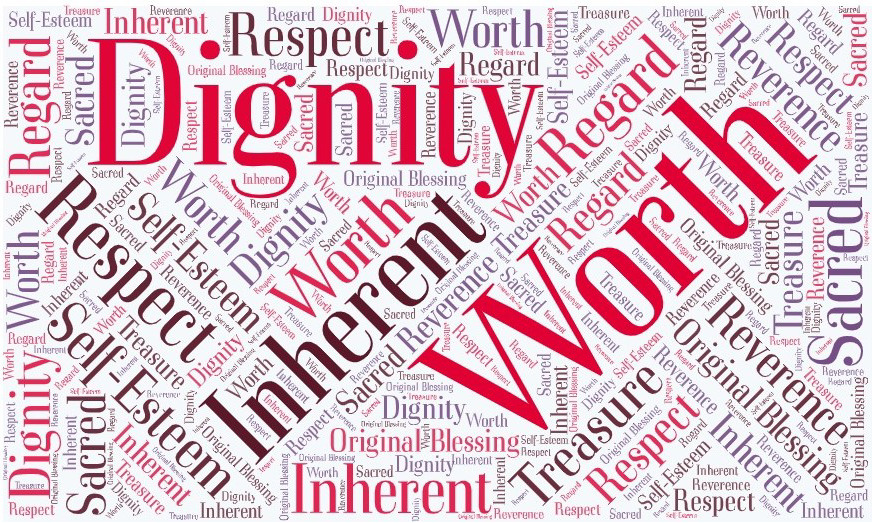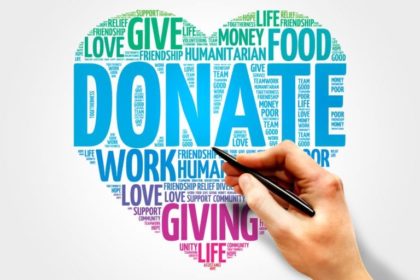
It was a staycation summer centered on the back yard. My son and his friends installed a brick patio. My daughter and I planted raised beds of vegetables. My wife concentrated on the herbs in the front garden. Along with the edibles, there also came a plant of white roses, and a hanging viburnum mingled with petunias. Watering was a daily, evening ritual. Much of the garden thrived and we are now reaping a bountiful harvest of tomatoes and peppers. Many of the other plants grew nicely but had little to offer in the way of fruit. The white roses thrived. Another rose plant didn’t. The herbs have been plentiful.
The hanging plant has been a contemporary parable. Lush and green, watered and pruned daily, it began to fade mid-summer and looked almost dead by August. And then, about a week after I had contemplated adding it to the compost green began to return to its stems and I awakened one morning to find that a single red bud had bloomed overnight, which was followed by three more midst the return of green stems. I know this plant. Burned dry by the summer sun, almost ready for the compost heap, with a resilience that bloomed in-spite of its apparent fate. Such resilience. Such dignity in the midst of predicted worthlessness. Such a lesson of a summer plagued with disease, political and social turmoil. I found my faith and my spirit again with those viburnum. I found hope again in the returning delicate green leaves. Such experiences remind me of the words of my colleague Erika Hewitt.
We who are Unitarian Universalist not only affirm the inherent worth and dignity of every person; we also affirm the inherent wholeness of every being — despite apparent brokenness.
No one reading these words is a stranger to pain, or the knowledge that things break, or break down: promises, friendship, sobriety, hope, communication…. this breaking happens because our human hearts and our very institutions are frail and imperfect. We make mistakes. Life is messy. Brokenness happens.
We’re intimately acquainted with brokenness, then, even as we believe that no matter how fractured we are or once were, we can make whole people of ourselves. We are whole at our core, because of the great, unnameable, sometimes inconceivable Love in which we live.
As UUs, we believe that paying attention to something is an act of love; witnessing and naming brokenness is how we begin to heal it. Some sorrows demand to be named out loud:
My sister died.
My body is fragile.
I’m scared that I won’t be able to pay my rent this month.
The streets in my city are filled with violence.
Healing begins when we examine what’s in pain, wonder how it occurred, and allow it to teach us.
In fact, sometimes the brokenness is immense and the only grasp, the only power we have over that large and complicated pain looming over us is to bear witness, to tell its story, and to seek out companions and helpers who are willing to agree that yes, there is something breaking or messy in front of us, and we will not leave or even look away until repair has begun.
If love begins with attention, repair takes the form of compassion, bearing witness, speaking out.
Repair looks like connection, justice, or even revolution. It looks like after-school tutoring programs, community meals, and holding signs in front of City Hall.
And it begins by placing full trust and faith that there is inherent wholeness in every broken situation.
(The Inherent Wholeness of Every Being by Rev. Erika Hewitt – https://www.uua.org/worship/words/reading/inherent-wholeness-every-being)
Blessings,
Aaron
Ways to Help Rev. Aaron Payson

People are wondering what they can do in these times. I know I do. How can I help? What can I do that is in line with my values, my financial situation, my desire to stay home yet still help? Here are some places to start:
Start Here at Home – at UUCW
Don’t forget to make your pledge if possible. Or make a gift that can be credited to this fiscal year. We will be dealing with lost rental and fundraising income due to the current gathering restrictions. We need to keep our staff, programs and building running even if we are not together. Go to www.uucworcester.org/donate to make a gift for this year or pledge for next year.
If you are interested in helping members of our Community who are struggling, consider contributing an additional amount to the Minister’s Discretionary Fund. These funds are used to help people with rent, prescription expense and other vital necessities.
Contribute to the Loaves and Fishes Food Pantry
There are two ways you can contribute to the Pantry at this time. If you are interested in contributing financially, go to the Loaves & Fishes online donation form.
We are also looking for hygiene supplies that our folks cannot purchase with SNAP. Last month we were able to give a bar of soap to all our clients. If you are able to drop off hygiene supplies, specifically wipes, soap, shampoo, toothpaste and/or deodorant that would be great. The drop-off location is Dianne Mann’s house: 21 Ridgewood Rd. Worcester, MA 01606. There will be a tub at the side porch for any donations. Any questions, contact: Dianne Mann at
Contribute to the Interfaith Hospitality Network Homeless Shelter
IHN is the Shelter that we partner with several times a year. They have many needs right now. This morning they were asking for the hygiene supplies we all need. They, too, have asked for additional money since they are in a position of needing staff to help cover the evening and night shifts that church people were supposed to cover. If you are interested in helping with the IHN Shelter, would like to know what they need, etc. Contact: Robin Mitzcavitch at .
Worcester Mutual Aid
If you are a Facebook user and want to help in specific ways, you may want to get on the Worcester Mutual Aid Facebook Group. There are specific postings here for people who need help. There are a wide variety of questions. Perhaps you will know the answer to a question about unemployment, rental questions, etc. We will all get through this together.
Worcester Mutual Aid Facemask Working Group
We’ve all heard how the people on the front lines do not have enough PPE. There is a large network of sewers out there making masks like crazy. Our own Robin Mitzcavitch is one of them! Perhaps you have fabric, elastic, t-shirts, etc. laying around that you never had time to sew, check into this group or ask Robin how you can help.
It’s tough times folks! Never before have we seen anything like it. I have faith that we will all get through this together. Take care of yourself those around you. If you have any needs, please reach out to me. And, if you have the time and/or money to help others, I encourage you to do that as well.
Peace,
Rev. Aaron Payson
/ 508-963-5959
